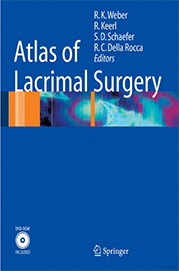Facial implants are mainly used to help improve and enhance facial contours. These implants give the face a more harmonious balance and increase self-esteem. Facial implants can be used to help strengthen a jawline, highlight cheekbones for a more youthful appearance and augment a chin to the right proportion for the face.
Most of the implants are made from silicone and are available for the cheeks, jaw and chin. They come in a variety of shapes and sizes, and with our ophthalmologist, Dr. Syed Ahmad’s assistance; you’ll find the perfect one for your most natural and best look.
What to Expect for Surgery and Afterward
The surgery time can be anywhere from less than one hour up to two hours, depending on the complexity of the procedure. After your surgery, movement of your mouth and lips may be limited. Swelling and bruising will last about a week, with slightly longer swelling for jaw implant surgery (possibly resulting in mild swelling for several months afterward).
Problems rarely occur after implant surgery, but you need to be informed about such possibilities. Implants sometimes shift slightly out of position, necessitating a second surgery. If infection happens and does not respond to antibiotics, the implant might have to be temporarily removed and replaced in another surgery. Dr. Ahmad will discuss the risks associated with the implant surgery during your consultation.
This type of surgery can be performed under monitored anesthesia care. This type of anesthesia is performed by an anesthesiologist. The main advantages of this anesthesia are:
- It does not require putting a breathing tube in the throat
- It does not require a breathing machine
- The recovery is much faster
- There is less nausea after surgery
All of these elements translate into greater comfort and safety.
This type of anesthesia entails an intravenous needle that is placed into one of the veins of the arm or hand. Relaxing medication is given to make the patient fall asleep and the amount of medication is adjusted as needed. After the patient is asleep, numbing medicine is placed into the skin of the area that is being operated on. During the procedure the patient is unaware of anything going on and cannot hear or feel anything, yet he or she is breathing normally.
Patients over age 60 and those with a current medical condition(s) are required to have a preoperative physical examination, blood work, and EKG performed by their primary physician before surgery for the safe administration of anesthesia.
If you are looking for facial implants in Plano, Texas, please give Texas Eye & Aesthetic Center a call at 972-519-9933 today for more information.




